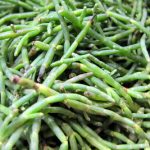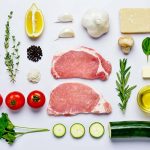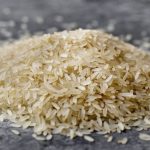News & Events

Are we doing diet and nutrition research wrong?
January 28, 2020 | Fred Hutch
Public health researcher Dr. Ross Prentice from University of Washington Department of Biostatistics is interviewed by Fred Hutch about ways he is applying intake biomarkers to assess and improve studies of diet and chronic disease. In this interview, Prentice highlights a recent feeding study he conducted with Drs. Johanna Lampe and Marion Neuhouser, core faculty members in the UW Nutritional Sciences Program, in which they used intake biomarkers derived from blood micronutrients and participant characteristics obtained from the Women’s Health Study.
Read article
Undergraduate student scholarships for 2019-2020
January 14, 2020
Scholarship recipients for the 2019-20 academic year are recognized for academic achievement, dedication to community service and extracurricular activities, professional promise, and their ability to overcome challenges. These awards prioritize support of students from diverse backgrounds and those who have overcome economic and educational disadvantages and/or personal adversity to pursue higher education. The scholarships are...
Read more
20 changes you need to make in your life in 2020
January 7, 2020 | Insider
This article features a quote from Adam Drewnowski, director of the UW Nutritional Sciences Program and the Center for Public Health Nutrition offering advice to cook at home, rather than eating out, for a better diet at no significant cost increase.
Read article
As the planet warms, unusual crops could become climate saviors — if we’re willing to eat them
December 20, 2019 | Ensia
Eli Wheat, a core faculty member in the Nutritional Science Program and Program on the Environment at the University of Washington is quoted about how government food production subsidies in our nation do not allow free market forces to act.
Read article
4-Week Study Abroad Program Explores Food Systems in Italy
December 11, 2019
Announcing a 4-week intensive, interdisciplinary program that uses systems thinking and a variety of perspectives to understand how factors, such as culture, policy, diet, and market structure, interact to create environmental, economic, health, and social/equity outcomes. La Dolce Vita: Comparative Food Systems in Italy begins with farm stays in Tuscany – a farm in the...
Read more
Faculty Friday features Jennifer Otten, Branden Born and Livable City Year
November 8, 2019 | The Whole U
The academic collaboration between Jennifer Otten and Branden Born is highlighted in The Whole U in a Faculty Friday feature.
Read article
How Washington keeps America sick and fat
November 4, 2019 | Politico
Mario Kratz, an associate professor in epidemiology, medicine, and nutritional sciences at the UW is quoted about the cost-prohibitive factors with NIH grants which present barriers for securing adequate funding for well-controlled dietary studies. Kratz works at the Fred Hutchinson Cancer Research Center where he studies dietary interventions and cancer prevention.
Read article
Keto, fat and cancer: It’s complicated
October 24, 2019 | Fred Hutch News
Marian Neuhouser and Mario Kratz, core faculty members with the UW Nutritional Sciences Program and researchers at Fred Hutchinson Cancer Research Center are quoted in this article discussing evidence known so far about best diets for cancer treatment and health.
Read article
The under-recognized power of preconception nutrition
October 21, 2019 | The Seattle Times
This story highlights the importance of proper nutrition before and during pregnancy and quotes Judy Simon, a registered dietitian and clinical faculty member in nutritional sciences at UW. The story is authored by Carrie Dennett, a registered dietitian nutritionist who is an alumna of the UW Nutritional Sciences Program (MPH/GCPD ‘2013).
Read article
Anne Lund named Fellow of Academy of Nutrition and Dietetics
October 11, 2019
Anne Lund, a core faculty member in the Nutritional Sciences Program and senior lecturer in epidemiology at the UW School of Public Health, has been named a Fellow of the Academy of Nutrition and Dietetics (FAND). The designation recognizes Academy members who have distinguished themselves among their colleagues, as well as in their communities, by...
Read more